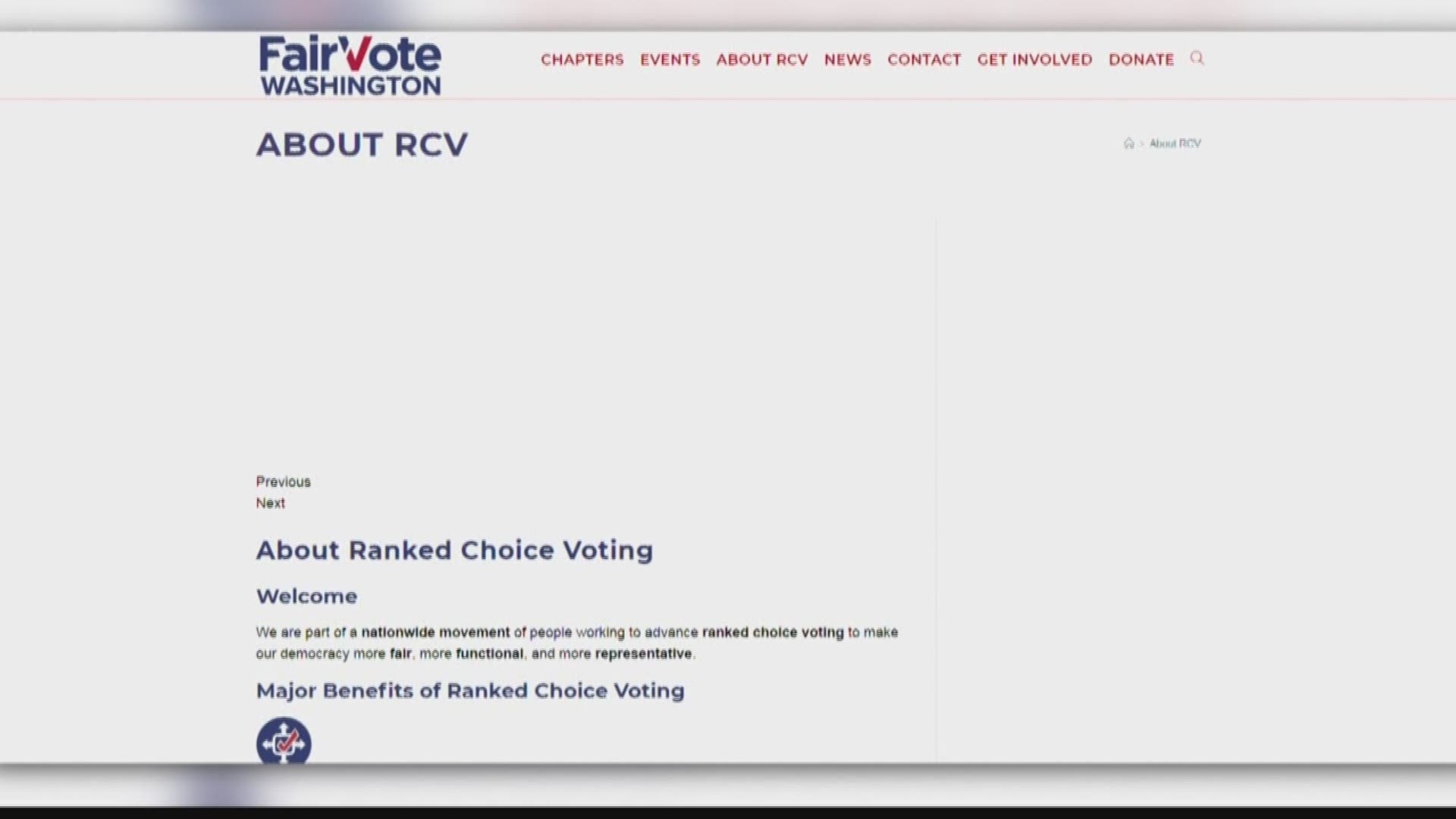SPOKANE, Wash. — FairVote Washington is the local arm of nationwide activist group FairVote, which pushes for various overhauls of the elections system.
According to a post on Spokane Reddit, the group may circulate a petition for a ballot initiative. The goal: replace "first past the post" elections with "ranked choice voting."
Here is a breakdown of the difference.
First past the post
Our current system is often referred to as "first past the post." In this system, each voter chooses one candidate.
The candidate with the most votes wins. It's as simple as that.
Ranked choice voting
Here's how ranked choice voting works.
Let's say you have five candidates. Rather than choosing only one, you rank them by preference. You can choose not to rank certain candidates, which makes them tied for last on your ballot.
Then, the state counts all the first-place votes. If one candidate gets a majority of those votes, they win.
If not, the candidate with the fewest first-place votes gets eliminated. For all the people who chose that candidate as their number one, their number two pick becomes their new number one.
Then, all the new number ones are counted.
This process repeats until either a candidate crosses the 50 percent threshold or all but one candidate has been eliminated.
Why?
That process is fairly complicated. It begs the question: why would anyone want it?
We will use 2016 as an example. Maybe a person really liked Gary Johnson during the last presidential election, but they knew he couldn't win and did not want to vote for Hillary Clinton. Because of that, the voter may have picked Donald Trump in order to stop Clinton.
That's known as strategic voting and it means someone didn't actually pick the candidate they liked the most.
The idea with ranked choice is, for example, you could put Johnson down as your number one and Trump as your number two. If Johnson gets eliminated, your vote goes to Trump rather than to waste.
This gives smaller candidates opportunities for votes they wouldn't otherwise have, proponents argue.
Proponents also say the process reduces divisiveness and negativity by forcing candidates to appeal to broader bases.
Where it exists?
Ranked choice voting already exists in several cities like Oakland, California, and in some foreign countries like Australia.
It also exists statewide in Maine. No other states use ranked choice. Maine uses it only for primaries.
In Washington, it's been proposed before in the state Legislature but has never made it very far.
For a few years, Pierce County used ranked choice but the same voters who enacted it repealed it fairly quickly.
Does it work?
The effectiveness of ranked choice is hard to nail down.
On one hand, Maine, a state known for having largely moderate and independent voters, has seen some potentially positive outcomes.
Before ranked choice, the traditional system resulted in a fairly extreme governor being elected with a small plurality in 2010.
After ranked choice, the 2018 gubernatorial candidates were more moderate overall and arguably more reflective of the Maine voting population.
However, whether that can be attributed to ranked choice itself is nearly impossible to say.
On the other hand, in places with ranked choice, the main party candidates still tend to win almost all the time, so there's little evidence so far that the system changes anything dramatically.
Detractors also point out that if you leave candidates unranked, and then all the ones you like get eliminated, your ballot does effectively become worthless in the final outcome.

